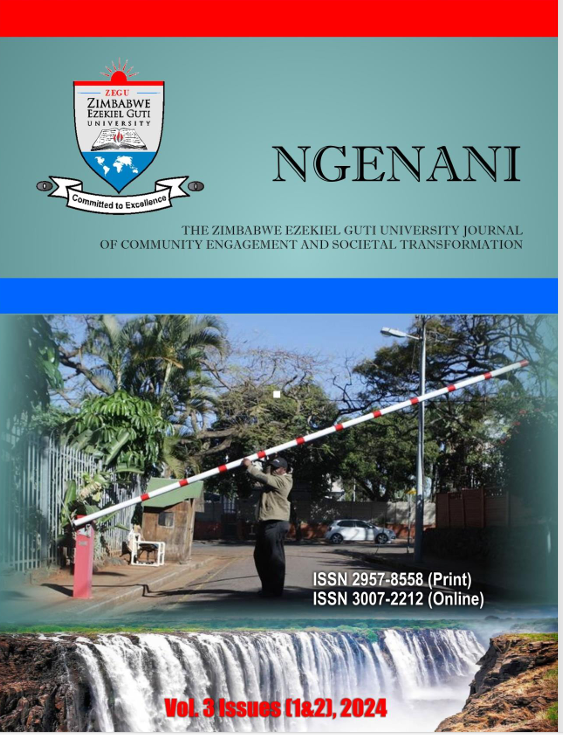Artisanal Mining and Its Socio Economic Implications in the Rural Development Agenda: Evidence from Uzumba - Marambapfungwe, Mashonaland Central Province, Zimbabwe
DOI:
https://doi.org/10.71458/0y7pqj27Keywords:
artisanal mining, socio-economic development , sustainable developmentAbstract
This research focuses on the impact of artisanal mining on the socioeconomic development of the selected wards from Uzumba Marambapfungwe (UMP) in Mashonaland East Province. The study unpacks intricate issues around artisanal mining in Zimbabwe by focusing on a rural community in Mashonaland Central Province where it is rife. Thus, the study ascertains the extent to which the local communities benefit or lose when artisanal or small-scale mining is pursued in a community. The study adopted a mixed research methodology to gather data that was anchored on interviewing key informants,ordinary research participants and researcher observations. It purposefully and randomly sampled a population that included twenty artisanal miners, ten community members and five key informants. The study establishes that artisanal mining delivers more economic benefits than expenses to the rural poor despite its uncontrolled environmental degradation. Notwithstanding the economic benefits accumulated by the rural poor from artisanal mining actions in UMP through employment creation and income generation, there is loss of revenue to central government since the activities are uncontrolled and untaxed. Thus, the study argues that despite its reputation as a source of employment in the face of high unemployment levels in the formal sector, the economic hazards associated with lose of tax revenue to central government, the chaotic and illegal nature of the activities and the environmental pillage is too high.




